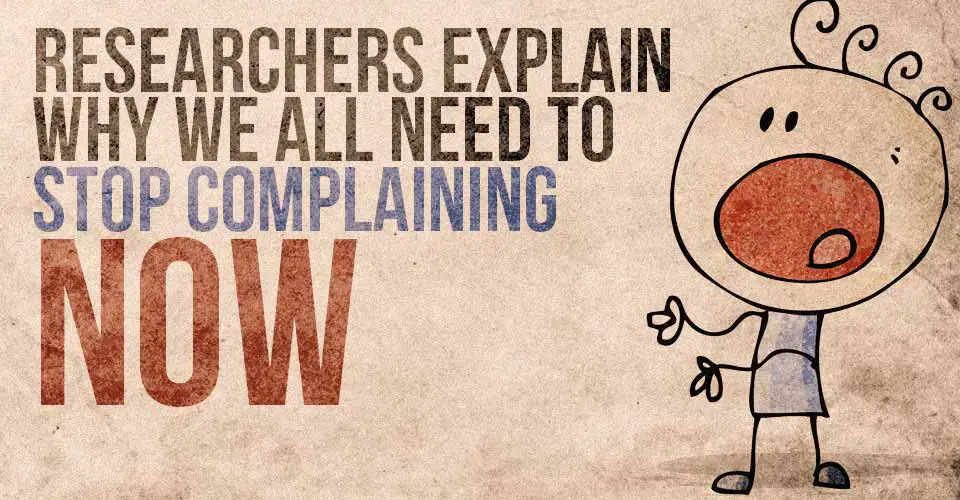
Venting, as it turns out, may not be as healthy as we thought. According to recent studies, the momentary release we get from complaining does not outweigh the adverse effects that it has on our wellbeing. Giving in to negativity too often, in fact, can be toxic to those around us and create bad habits in regard to our own worldview. Surprisingly, whining and negativity can cause our physical health to deteriorate, as well. Below is an outline of how complaining changes your brain, damages your body, and alters the wellbeing of those around you.
Negative Nelly’s Neurons
Throughout your brain there is a collection of synapses separated by empty space called the synaptic cleft, and when you have a thought, one synapse in your brain builds a bridge to another across which to pass information. When this happens, those synapses grow closer together, making the bridge quicker and easier to cross with each repeated e do need to confront them in a way that is productive, for the sake of our minds, our bodies, and our friends..t.a smile can lthought. For this reason, every time you think that your brother’s soccer game is boring, your brain becomes more ready to trigger that thought the next time you show up to the field, until eventually you become restless at the mere mention of soccer.
Conversely, deliberately feeling gratitude can have the opposite effect. If you count the things around the soccer field that make you happy – the crisp air, the green grass, the snacks and the sunshine – your brain will become more readily triggered for joy in this environment. Cheering when he scores a goal can make you, over time, more excited for his success, in the same way that forcing a smile can lead your brain to think happy thoughts.
Steven Parton explains how these closer synapses result in a generally more pessimistic outlook: “Through repetition of thought, you’ve brought the pair of synapses that represent your [negative] proclivities closer and closer together, and when the moment arises for you to form a thought…the thought that wins is the one that has less distance to travel, the one that will create a bridge between synapses fastest.”
Complaining and Cortisol
Although venting may feel good in the moment, it causes your body to release a stress hormone called cortisol. The negative effects of this hormone are astounding – it interferes with learning and memory, lowers immune function and bone density, and causes weight gain, high blood pressure, high cholesterol, and heart disease.
One study published in the Archives of General Psychiatry found that optimists, as a group, tend to live longer than pessimists, with a 55 percent lower risk of death from all causes and a 23 percent lower risk of dying from heart failure. This suggests that a positive outlook could increase not only the quality of your life, but also the length of it.
Negativity is Contagious
Most of us have at least one friend who brightens up the room with an infectious smile and upbeat outlook. When you think of her, can you cannot help but smile yourself. The reason for this is that emotions can be physically contagious. Researchers Nicholas Christakis and James Fowler discovered that happiness spreads through social networks, much like a virus. Christakis and Fowler explain: “A person’s happiness is related to the happiness of their friends, their friends’ friends, and their friends’ friends’ friends—that is, to people well beyond their social horizon.” They reported that each additional happy friend increases your probability of being happy by about 9 percent. As a comparison, they cited past research that found that an extra $5,000 in income only increased the probability of being happy by about 2 percent.
“When we see someone experiencing an emotion (be it anger, sadness, happiness, etc), our brain ‘tries out’ that same emotion to imagine what the other person is going through. And it does this by attempting to fire the same synapses in your own brain so that you can attempt to relate to the emotion you’re observing. This is basically empathy. It is how we get the mob mentality…. It is our shared bliss at music festivals,” writes Steve Parton. “But it is also your night at the bar with your friends who love love love to constantly bitch.”
So what should we do instead of complaining? Address the problem directly! Guy Winch, Phd., explains that the problem with our venting is that it is rarely done in a productive way. “Research has found that 95% of consumers who have a problem with a product don’t complain to the company, but they will tell their tale to eight to sixteen people,” he says. “It’s unproductive because we’re not complaining to the people who can resolve our issue.” We don’t need to ignore our problems entirely – but we do need to confront them in a way that is productive, for the sake of our minds, our bodies, and our friends.


